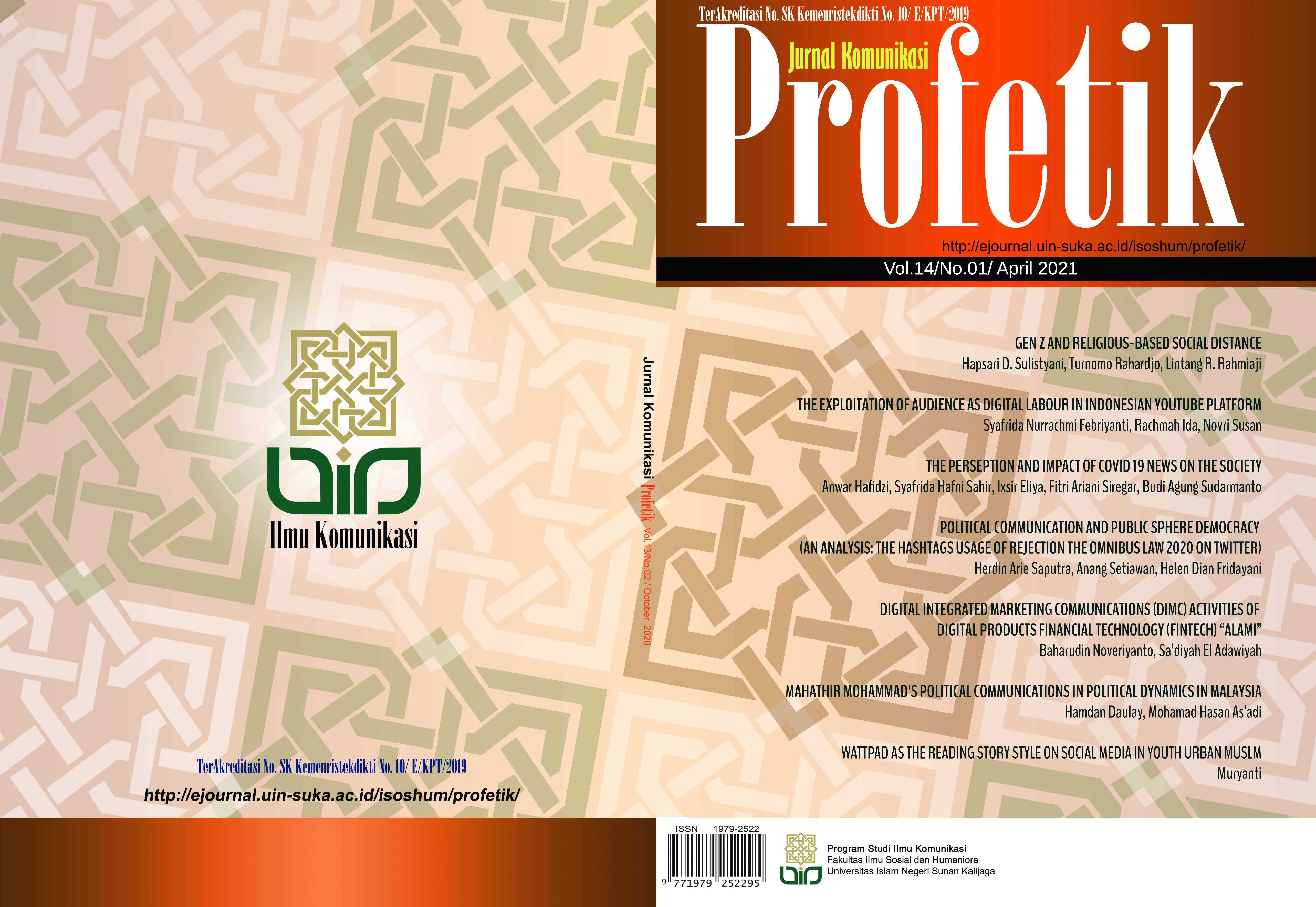Enhancing Collaborative Communication Strategies with Members of The Regional Representatives Council (DPRD) in Yogyakarta
Main Article Content
Abstract
This research aims to find a model of governance for collaborative communication between members of the secretariat and members of the Regional People's Representative Council (DPRD) of Yogyakarta Special Territory (DIY) in the implementation of legislative functions. The methods used are phenomenological methods with qualitative-descriptive research techniques. The research data are obtained from in-depth interviews, face-to-face interviews, the DIY regulatory manuscripts of the DPRD, and meetings relating to rigidity, Propemperda 2020, public hearings, and especially Tree of Mind 2024. These data were analyzed using four theories, namely, the relationship communication theory, the face negotiation theory, the boundary management theory, and the collaborative governance theory. The study obtained the results of 13 models of communication governance in five categories as well as a general model of collaborative communication. In the first category, the communication relationship between board members, fractional staff, and staff members of the secretariat department, four models were found. In the second category, that is, communication relations between council members and staff of the fraction, two models were discovered. The conclusion of this research is that the 13th model of communication governance is a portrait of a phenomenon that needs to be improved in the DIY DPRD environment so that the selection of a common model of collaborative communications governance can support the communication relations of the secretariat and the members of the DIY DPRD in carrying out legislative functions
Article Details
License
Please find the rights and licenses in Profetik: Jurnal Komunikasi by submitting the article/manuscript of the article, the author(s) agree with this policy. No specific document sign-off is required.
1. License
The non-commercial use of the article will be governed by the Creative Commons Attribution license as currently displayed on Creative Commons Attribution-NonCommercial 4.0 International License

2. Author(s)' Warranties
The author warrants that the article is original, written by stated author(s), has not been published before, contains no unlawful statements, does not infringe the rights of others, is subject to copyright that is vested exclusively in the author and free of any third party rights, and that any necessary written permissions to quote from other sources have been obtained by the author(s).
3. User/Public Rights
Profetik's spirit is to disseminate articles published are as free as possible. Under the Creative Commons license, Profetik permits users to copy, distribute, display, and perform the work for non-commercial purposes only. Users will also need to attribute authors and Profetik on distributing works in the journal and other media of publications. Unless otherwise stated, the authors are public entities as soon as their articles got published.
4. Rights of Authors
Authors retain all their rights to the published works, such as (but not limited to) the following rights;
Copyright and other proprietary rights relating to the article, such as patent rights, The right to use the substance of the article in own future works, including lectures and books, The right to reproduce the article for own purposes, The right to self-archive the article (please read out deposit policy), The right to enter into separate, additional contractual arrangements for the non-exclusive distribution of the article's published version (e.g., post it to an institutional repository or publish it in a book), with an acknowledgment of its initial publication in this journal (Profetik: Jurnal Komunikasi).
5. Co-Authorship
If the article was jointly prepared by more than one author, any authors submitting the manuscript warrants that he/she has been authorized by all co-authors to be agreed on this copyright and license notice (agreement) on their behalf, and agrees to inform his/her co-authors of the terms of this policy. Profetik will not be held liable for anything that may arise due to the author(s) internal dispute. Profetik will only communicate with the corresponding author.
6. Royalties
Being an open accessed journal and disseminating articles for free under the Creative Commons license term mentioned, author(s) aware that Profetik entitles the author(s) to no royalties or other fees.
7. Miscellaneous
Profetik will publish the article (or have it published) in the journal if the article’s editorial process is successfully completed. Profetik's editors may modify the article to a style of punctuation, spelling, capitalization, referencing and usage that deems appropriate. The author acknowledges that the article may be published so that it will be publicly accessible and such access will be free of charge for the readers as mentioned in point 3.
